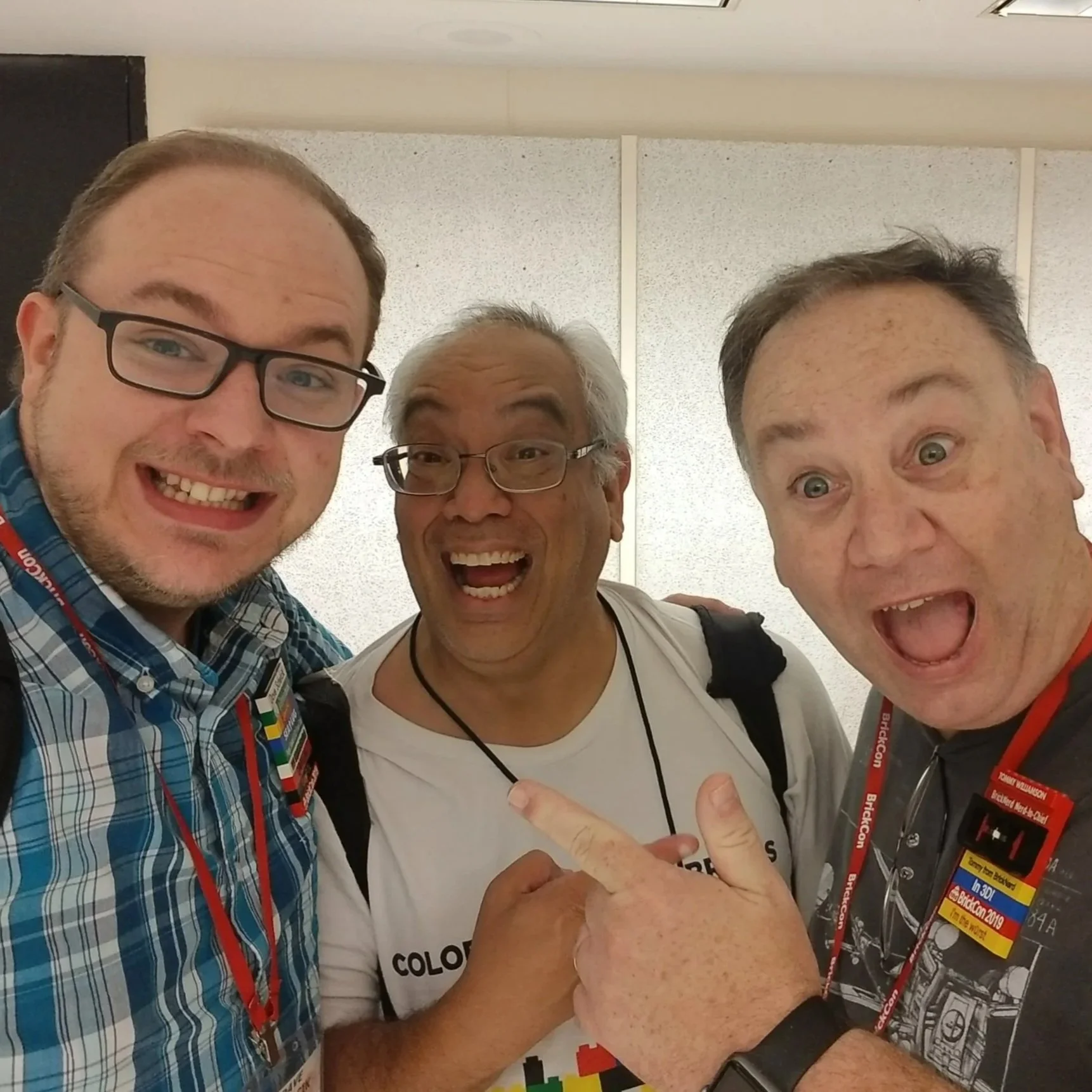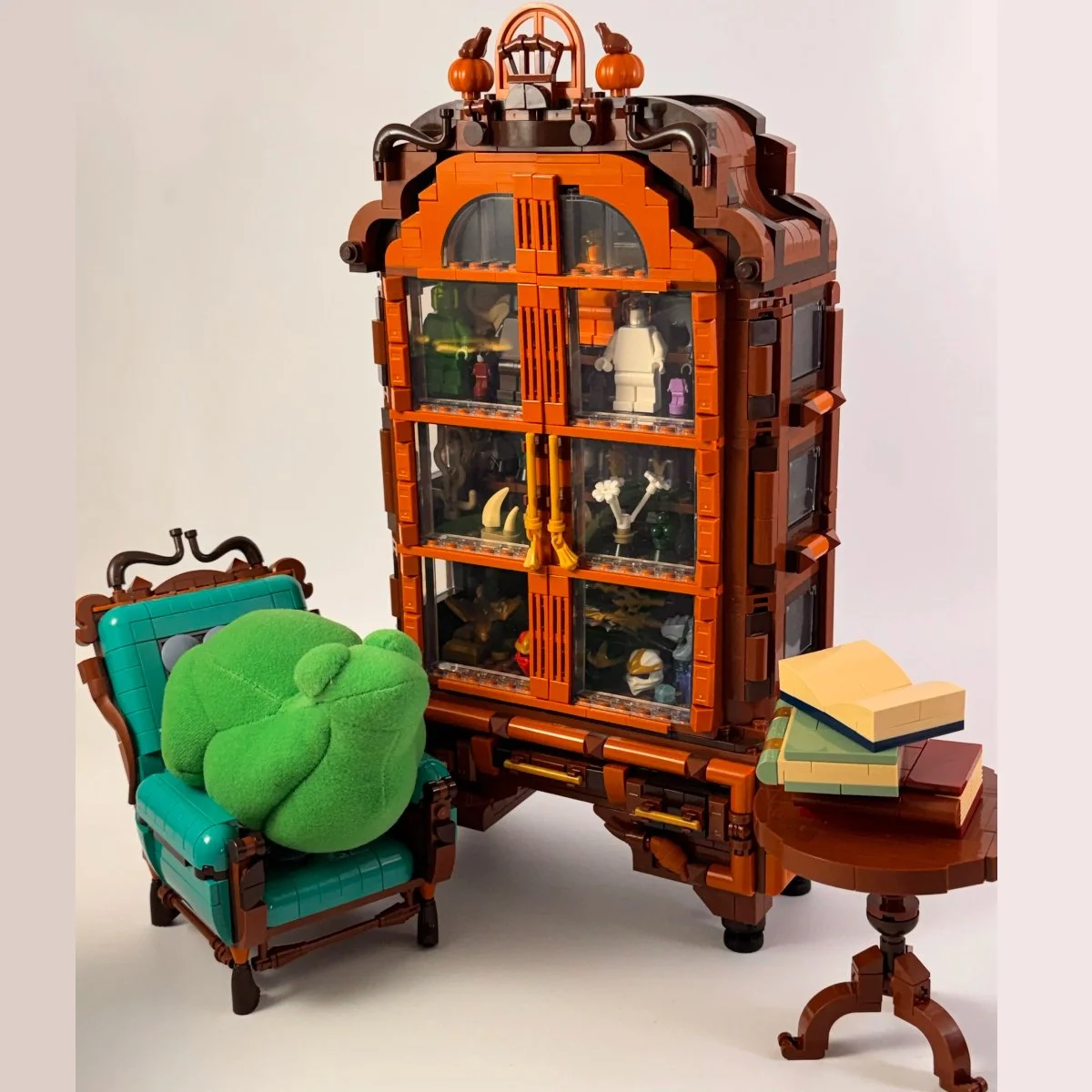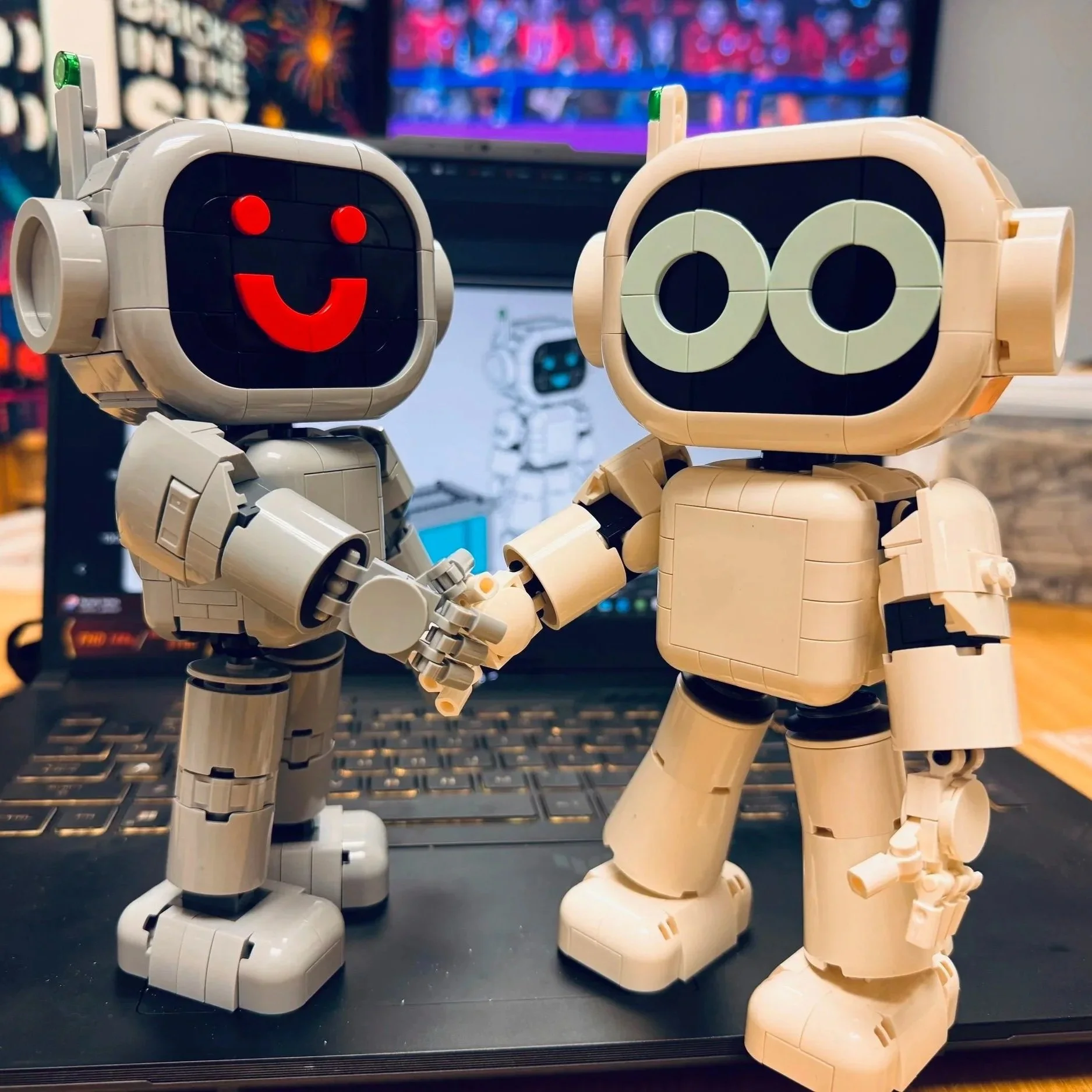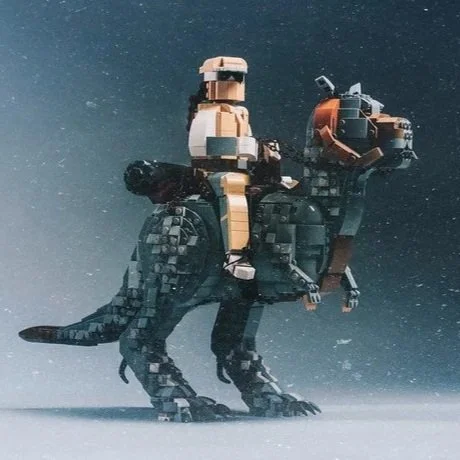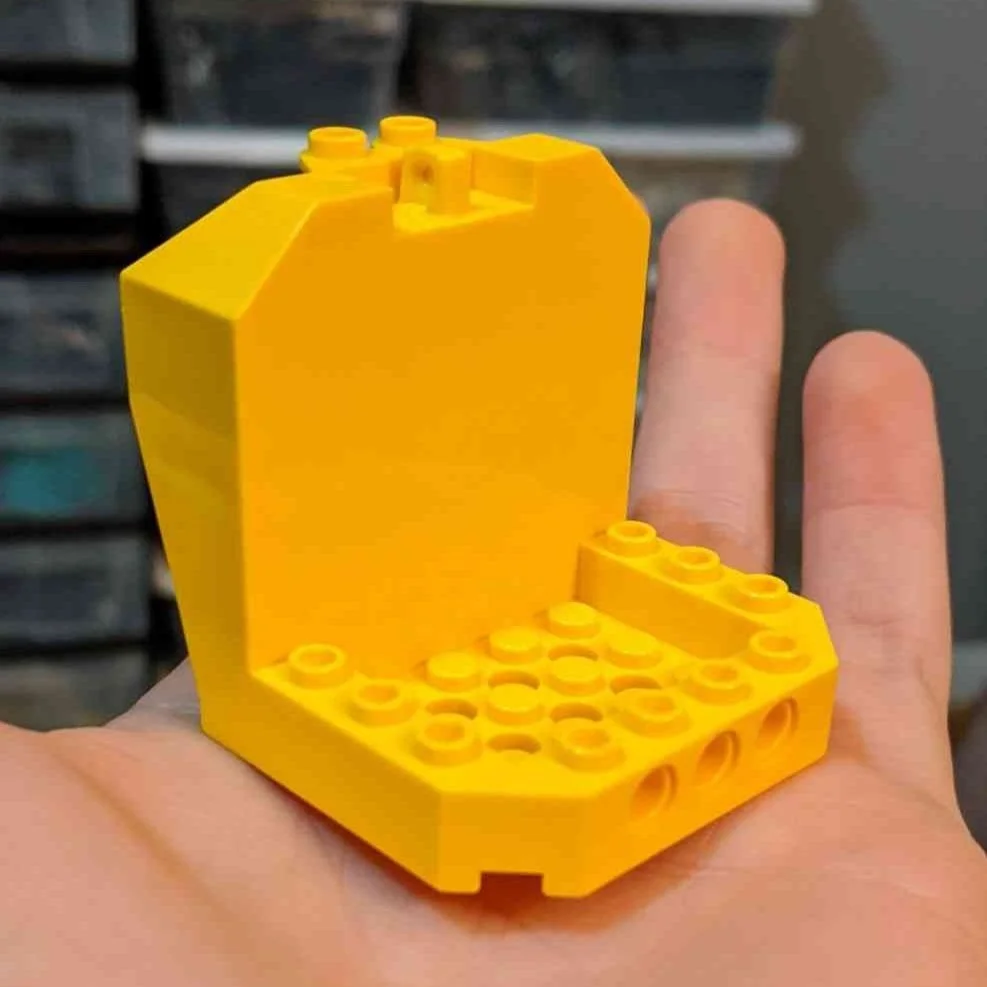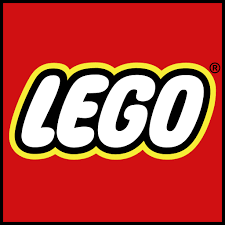Simon Liu: The Origin Story of a LEGO Legend
/Today’s guest article comes from Casey McCoy, an AFOL from the Chicago-land area, an active MOC builder, and current Brickworld Master for a few more days. You can find him online on Flickr and Instagram.
Meet Simon Liu
In the North American LEGO Community, you’re hard-pressed to find someone as prolific, impactful and engaged as Simon Liu. A man whose MOC output and community engagement over a short baker’s dozen years rivals what most dedicated AFOLs hope to accomplish in their lifetime. He’s one of the biggest influences in our modern AFOL landscape, whether you know it or not—from community organization, build challenge creation, iconic build inspiration, parts spamming, and more!
Online, you may see him masked in anonymity—imbued in the image of a Ferrero Rocher or Benny. However, in person, there’s no mistaking him. Simon’s spiky hair and cheery personality, with a large troupe of AFOLs/TFOLs in tow, are hard to miss. And you’ve probably seen this because he’s been to many major conventions in North America and even some in Europe in his decades-long LEGO career. A common adage after you ask someone you meet how they know Simon is, “Well, Simon knows everyone.”
To me, he’s the man who needs no introduction. However, just to give you context as to his accomplishments, they include several evergreen community theme months and contests, 20 million total lifetime Flickr views, a LEGO House display, Brickworld Master (2012), dozens of convention awards and nominations, founder and/or member of six LUGs, coordinator for two North American conventions, countless Brothers Brick and Beyond the Brick features, and author of even more Brothers Brick and BrickNerd articles—and even a LEGO Guinness World Record—and this is just scratching the surface! But who is the man who hides behind the Ferrero Rocher?
I sat down with the legendary Mr. Liu to celebrate his achievements and unearth the story of how the sci-fi titan came to be. We will cover his roots, early AFOL experiences, and the defining moment he became a pillar in our little LEGO community. So hop in your interstellar frog pod, we’re in for a wild ride!
Simon Says: Growing Up Wasn’t Easy
In lieu (or Liu?) of childhood photos, we will use a space baby as a stand-in for young Simon. It just needs spiky hair poking through the space helmet.
Our story begins not in the North American LEGO world but in the British-controlled entity of Hong Kong. Simon was born to a modest family of two parents and a six-year-old brother. Simon says some of the earliest familial recollections of his early childhood development were characterized as being slow. In his own words: “I did not speak as a child for a very long time. I had a very delayed vocalization. I didn’t say much or only spoke only gibberish.” This delay has been theorized by Simon’s older brother to be a result of the multilingual exposure at the time—English, Cantonese, and Malay (among others). This phase would not last long, however, as the Liu’s were about to radically change their way of life.
This was on a commercial airplane, not a galactic cruiser…
With the hope of more political stability and better economic opportunities, the Liu family emigrated from Hong Kong to Canada, specifically to the city of Toronto, where the family has remained ever since. Simon was only four years old. This dramatic transition would prove to be the hardest challenge for little Simon. His family moved to a homogeneous, western neighborhood where Simon would join their school system. Growing up in Canada was not smooth or short…
“We grew up in an extremely western culture town. Me and our cousins were the only people who were different. My parents literally ran the Chinese restaurant for many years. It was exactly what you would imagine—a predominantly homogenous culture where there is one Asian kid. It didn’t help that my brother is much older than me. We were both in the same school for a very short period of time, but for the most part, I was always by myself. As they said on the Simpsons once, ‘Kids can be so cruel.’ Those were the most traumatic childhood memories.”
One of these babies is not like the other…
Shortly thereafter, Simon’s speech would come up to normal childhood expectations for development. However, Simon, whose native tongue was Chinese, was a black sheep amongst his peers: “I was in ESL, which means I didn’t speak English at all. It didn’t help with making friends because you get taken out of class and you’re the weirdo. In a town where you’re the only one leaving for the ‘learn how to speak English’ class, there’s a stigma.”
After finally completing sixth grade during this difficult period, the Liu family moved again to a different part of the city where Simon’s childhood would completely change again. This time, for the better. This new school system was much more diverse and welcoming. His life improved dramatically and a small social circle formed: “Not a lot of friends, but enough. I wouldn't say I was popular, but I had a closer-knit couple of buddies. The instant I moved, I got way better grades.”
Around this stage, Simon engaged in many hobbies and activities common to any kid growing up at the time. His go-to hobby was watching cartoons and playing video games. His tastes ran the gamut, but Simon’s favorite games were Real-Time Strategy (RTS) games from Blizzard Entertainment (Starcraft and Warcraft).
He would develop a love for reading after a chance purchase of a Calvin and Hobbes book, the first book he wanted to read. Sensing a change, Simon’s parents encouraged him and bought him more, especially as this coincided with dramatically improving his English skills. His favorite books from that time and to this day include Ender’s Game, Jurassic Park, Brave New World, and The Hobbit.
See Simon’s 2015 Collaborative Effort: LEGO Starcraft…the love for Starcraft never waned!
However, despite engaging in more introverted activities in both youth and adulthood, he also frequently played street hockey with his friends after school—very on-brand as a Canadian: “I play the extrovert very well, but I would classify myself as an introvert. Which is why I like LEGO so much. I’m very good at dealing with people—work has taught me how—but that doesn't necessarily mean I want to be around people all the time.”
LEGO was not a humongous part of Simon’s childhood—something you wouldn’t expect from someone who would go on to be so prolific later in life. “Because LEGO wasn’t traumatic, I don’t remember it as much growing up. I remember the city I built. I never really got the sets—it was a lot of hand-me-downs.” However, Simon’s nonsensical humor, love of spaceships, and overall joyous whimsy that has carried on into his LEGO building later in life were ever-present at the time: “I believe it was one of the math class teachers who yelled at me, not necessarily because I was doodling, but because I was making noises while doodling—missile and gun noises since I was done with the test.”
Simon would stay in this neighborhood’s school system all the way through graduating high school. He would then leave for university to pursue a degree in engineering.
Engineering a New Path
Although other “pipe dream” jobs bounced around in his adolescent head, such as an astronaut or LEGO designer, Simon didn’t land there. While there wasn’t substantial parental pressure to study a specific vocation as long as it was “a good one,“ Simon eventually landed on engineering. As is the case with many AFOLs, growing up with LEGO and being a LEGO fan naturally led him toward his next phase of life as an engineering student:
“Even though I got pretty good grades, it still was not guaranteed to get into the school I wanted. So I did write a cover letter and I did talk about LEGO. There were some LEGO references where I looked at problem-solving, like building LEGO. Where I’m given a discrete number of parts and I can do so many things with those parts. LEGO taught me how to problem solve and build something out of limited pieces.”
We found at least one!
Whether it was the cover letter, or something else, Simon got into his preferred school. And initially, university was a blast—at least at the start. He was a straight-A student, enjoyed many parties in his time, and fit right in with the engineering school. A particular highlight included his first year as an “orientation lead” in charge of the incoming freshmen: “Some of my best memories.”
(There’s also some talk about him sporting a punk-style mohawk and dyed in purple from head to toe: “There are some very fun photos of me floating around somewhere.”)
However, during his collegiate years, a family member passed away unexpectedly, and Simon almost failed out of school: “I turned it around enough. It was unexpected and threw us for a loop. I literally got the call when I was walking to my mid-term. The professor told me, ‘Go home, you’re useless’.”
In time, Simon was able to recover from the loss and chug away at school: “The first couple of years were super fun. Then it dragged on like any other schooling.” Simon says in hindsight that his time in university really developed his life skills in living with other people, accomplishing tasks, and being productive, all while having a “safety net” around you. He would begin closing in on his final semester, and that’s when everything would really change… and get very LEGO!
Dramatic Reenactment…
As the legend goes, during the final semester of university, Simon had a whole month to do his exams. But most were front-loaded in the first week, with only one in the last week of the month. So while killing time in the two-week lull, Simon happened to stumble across the LEGO aisle at Toys R Us with his friends. A Star Wars set struck his interest, and he bought it, built it, and rekindled the fun experienced during childhood. (Editor's note: LEGO’s Star Wars license around this time was probably responsible for ending a majority of all dark ages for AFOLs, in my estimation). The bug had bitten him, and his adult disposable income led to buying more sets.
A dark, alternate timeline exists where Simon bought sets, displayed them, and maybe lost interest in the LEGO brand. However, Simon would stumble upon the LEGO community, which is where things would really take off…
Castle Simon: Emerging from the Dark Ages
No need to adjust your monitor. Yes, this is a Castle build from the sci-fi guy. It is still pretty neat, though! Temple of Lazarus (2011). Nominated for Best Vignette at Brickworld Chicago 2012.
As Simon got formally into the MOC-making LEGO hobby, you may be surprised to find out that he originally wanted to build castles. And he went on to build quite a lot of them. So much, in fact, that he was a founding member of the Guilds of Historica on Eurobricks alongside Derfel Cadarn, Sirens-of-Titan, and I Scream Clone, which still continues on to this day. If you patrol the back catalog of his Flickr, you’ll find those GoH builds along with more than a few medieval gems.
Great Wall of China (2011)
I think one of the standout MOCs from around this time was Simon’s Great Wall of China. This build would be impressive if displayed in 2024, but it was one of Simon’s earliest works all the way back in 2011. I think it’s the best of his castle era. Even with a more limited parts palette from that time, Simon still does a skillful job at sculpting the green cliff face at the base of the wall with gentle curves introduced with 1x2 green slopes and pops of lime and dark green for color. He makes it look effortless, but it wasn’t.
Simon recalls some of the first classic castle AFOL pitfalls he fell into at the time: “I had bought a bunch of BURPs and castle walls, thinking about building my castle or a custom Batcave, but what happened was, as I got more into the community, there was a strong realization that no one uses BURPs. It's all brick-built.” (This is a key moment in any AFOL hero’s journey, and Simon’s was no different.)
The Quisquiliarum (2011)
At this time, he did start to slowly find the online community with some particular highlights: “I do remember seeing MOCpages, seeing Brothers Brick, the Keith Goldman stuff, the neo-classic space guys, Nannan, Tyler, which was very inspirational for me, and somehow I figured out that BrickLink was a thing.” As the story goes, Simon would later stumble upon an advertisement for a local event in Toronto with RTL (Robots, Train, LEGO). He took a chance on the show and met Isaac (Ricecracker) and Iain (~Ara~), who formally introduced him to the other half of the LEGO hobby—real-life AFOLs!
Connecting with other local hobbyists in person would really draw him out of the true dark ages and send him headfirst into the LEGO world. However, looking at Simon’s build catalog, you see little to no castle/historical representation after the summer of 2012. Instead, it’s a LOT of space. So what happened?
Simon the Sci-Fi Titan: Off to the Space Races
One of Simon’s later SHIPs - TriPerron - Nomad Explorer (2020)
In the present day, I think Simon is most often known for his fusion of the sci-fi genre and LEGO bricks (as seen above). He’s had his fair share of mechs, SHIPs (Seriously Huge Investment in Parts), robots, weapons, and much more. While I don’t want to pigeonhole Simon as “the sci-fi guy”, it’s hard not to talk about Simon without his prolific science-fiction build catalog. He relents: “It is what it is. I do that well. It’s hard to go against that. I feel like I’ve proven myself to be definitely more capable, but also, I am most well known for things sci-fi, and I guess that’s good to have my specialty.”
But we need to rewind the clock to see that the sci-fi builds were built in tandem with his early castles (his earliest MOC on Flickr is a science fiction tank). So what happened to Castle Simon? Sci-fi-Si-MOCs explains: “I kind of burnt out of it and haven’t looked back.”
After putting in all the hard work of founding Guilds of Historica and helping run it for a year, enough was enough: the Sci-Si was born. He explains the genre’s advantageous, evergreen appeal: “The other thing about sci-fi, unlike everything else: there is no right answer. If I am building a castle, it has to look like a castle, right? If I’m building a gun from a video game, it has to look like that game. Pure sci-fi that I make up? There is no right answer. If I don’t have a piece or a piece I want to use, that’s fine. I can build around it. I can build something new—it doesn’t matter. There’s a certain amount of cheating available when you build sci-fi because there are no right answers.”
And Simon has certainly had the license to make up whatever he’s wanted in that time. We will delve more into Simon’s signature style down the road, but I did want to briefly touch on Simon’s early space builds around this time. One is Test Fit (2011) which combines an instantly recognizable look, smart color choice, and highlights Simon’s nonsensical humor: “I don’t build things that naturally make sense or don’t make sense. That could conceivably work or not work—it’s all make-believe nonsense. I try to keep it realistic in my mind but not to the point where it would satisfy a physicist.” Other early gems include Si-Ma.K 42 (2011), TEAM BLUE (2011), and Automated Automaton Machine (2011)
Simon putting together the AAM.
Science fiction would be the well that Simon would draw from again and again to express his artistry, develop his sense of style, and launch into the stratosphere of LEGO fan achievements. However, Simon dropping castle for sci-fi wouldn’t be the only significant event taking place in the summer of 2012. That summer would also be key for another very important community reason…
Brickworld 2012: The Defining Moment
While still relatively new to the online LEGO and AFOL communities, having only been building for a couple of years as an adult, Simon was taking to MOC building like a fish to water. (Or like front teeth to two conjoined plates.) While he had attended the inaugural Brickfete in 2011, it wasn’t until he was drawn to the United States for Brickworld Chicago 2012 for his first “big convention” where Simon would have his AFOL “canon event.”
At his first large convention, Simon would be nominated in three categories and ultimately win its most coveted prize: the title of Brickworld Master. Look at him, he’s beaming!
I think it’s best if I just let Simon recount the experience for you:
“To this day, I have very vivid memories. If you remember from a certain person winning…” (he’s referencing the author here) “...I made sure to sit beside them because that was a very special, happy, and specific memory that I have carried for years. Adam Myers was sitting beside me—we were in the back of the room at the Westin. When I was called up, I remember this very vividly, he literally pushed me to go make the acceptance speech. I had no idea what to expect. My first Brickworld and make an acceptance speech? That’s super awkward. I’m a decent public speaker, but even I was overwhelmed.”
Simon continued, talking about a conversation he had later that night with the convention co-founder and then-organizer, Bryan Bonahoom, which would shape his future:
“We were on the balcony and it was raining, so we had that heart to heart and he gave me this entire story about ‘you’re a Brickworld Master, this is what it means, this is why it’s important.’ It was the hero origin story where he told me to be the hero, and I believed that because I was so new and naive at the time. I was told: ‘Simon, you should represent the best in the community and all the great things it does,’ and I tried to live up to that—I believed in that. And even now, when I know that’s utter [crap]—there’s no special onus on you, like the weight of the community on your shoulders—I still try to continue that legacy. In that, I gotta do the right thing for the community. And it’s such a crazy thing that if any of those things did not happen, in that right order, we would not be having this conversation.”
“I would not be the person I am today without Brickworld Master. Would I be a better builder? Maybe. Would I be the same community person I am today? No. Absolutely not.”
He continued: “Even before I won Brickworld Master, I already started doing community things, but that award gave me the confidence and the stamp of approval to do whatever I thought was cool or fun for the community and to focus on that community. Versus, if I had not won, maybe I would have been more reserved in what I might have attempted to do. Versus the concept of ‘I’m a Brickworld Master, I do what I want!’ which has led to (fortunately or unfortunately) encouraging my friends to build awesome builds for everyone else.”
And so, how did Simon go around spending his blank check of community respect and goodwill for the next 10 years? Well, I’ll tell you…
Conclusion
…very soon! We’ve already gone on quite a bit as it is. At the time of this article’s publication, a bunch of us from BrickNerd are at Brickworld 2025 and need to go hang out! But come back in a bit for part two when we will cover Simon’s accomplishments over the next 10 years with an in-depth review of his building style, influences, community impact, and legacy. (Don’t worry, it will include a lot of spaceships.)
And if you find Simon at Brickworld, introduce yourself and give him the secret code phrase phrase.
Best of BrickNerd - Article originally published June 13, 2024.
Have you ever met this guy, Simon? Has a LEGO award ever encouraged you? Let us know in the comments!
Do you want to help BrickNerd continue publishing articles like this one? Become a top patron like Charlie Stephens, Marc & Liz Puleo, Paige Mueller, Rob Klingberg from Brickstuff, John & Joshua Hanlon from Beyond the Brick, Megan Lum, Andy Price, Lukas Kurth from StoneWars, Wayne Tyler, Monica Innis, Dan Church, and Roxanne Baxter to show your support, get early access, exclusive swag and more.





















